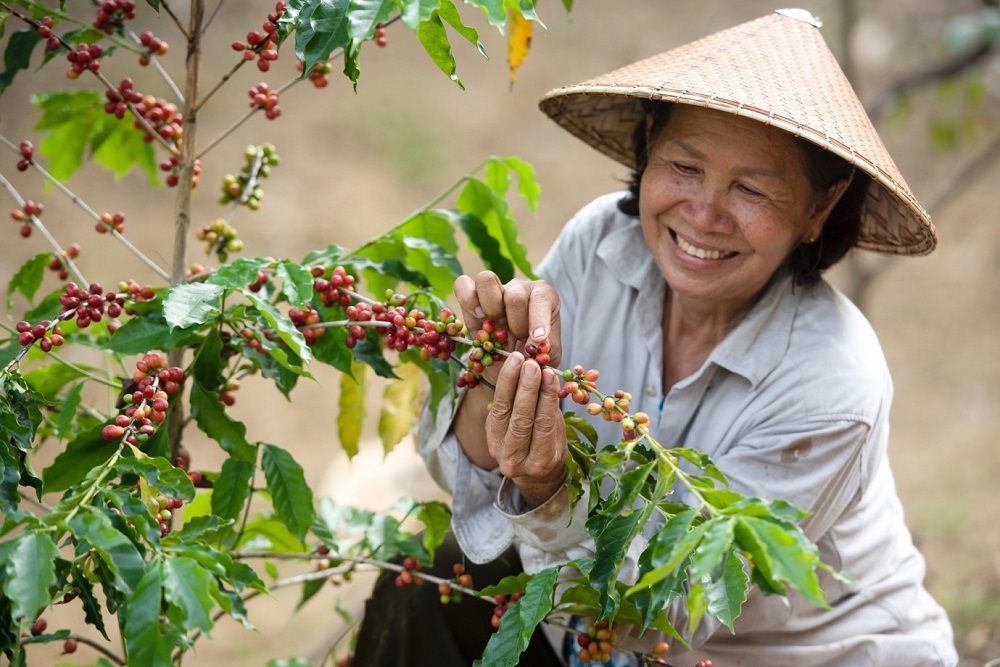It goes without saying: COVID-19 has hit the world hard. We have seen how this global health crisis had taken a toll on economies, industries, jobs, and households globally. A year in today, governments and finance ministries around the world, including Vietnam, are looking into ways to recover and come back from the pandemic.
While Vietnam is currently seeing a surge in cases due to the Delta variant that is sweeping across the globe, the country has been hailed as a success story for much of last year, successfully containing the virus through its targeted testing and centralised quarantine programme. This has helped the economy to continue growing – Vietnam’s GDP is estimated to have grown by more than 2% in real terms in 2020 at a time when other economies in the region were contracting.
The agri-food sector plays a significant role in this continued economic growth. According to a report released by Oxford Economics earlier in April (The Economic Impact of the Agri-food Sector in Vietnam), Vietnam’s agri-food sector contributed US$86.4 billion to the country’s GDP in 2019 –equivalent to 26% of total GDP – and was responsible for half of the country’s entire workforce with 27.5 million jobs. It also contributed a total of US$13.2 billion in tax revenues.
More notably, the sector had remained resilient during the pandemic, seeing a 4% growth in 2020, or a US$3.7 billion increase in GDP contribution. An Economy Recovery Matrix in the same Oxford Economics report highlighted that Vietnam’s agri-food sector is well-placed for recovery, coming in second across 10 countries, behind only Singapore.
It is clear that the agri-food sector is an economic powerhouse and a key pillar of the national economy. However, it is crucial to keep in mind that while the local agri-food sector has demonstrated great resilience against the challenges of the pandemic, further developments on the virus, supply and demand risks, and fiscal risks still have great potential in disrupting its growth and Vietnam’s.

Multi-sectoral collaboration is important
To thrive in the new normal, the Vietnamese government and the agri-food sector need to work closely together to firstly create a conducive trade environment that ensures food supplies remain open, transparent, and predictable. This will ensure a reliable food network and secure source of food and ingredients for everyone – both on a consumer and production level.
Policymakers will also need to work closely with the agri-food industry on potential policies that seek to restore Vietnam’s fiscal position as we move ahead from the pandemic. It is important that policymakers understand that any new fiscal measure introduced needs to be well designed, targeted, evidence-based, and efficiently regulated; otherwise, they risk widespread disruption across the sector and subsequently, the wider Vietnamese economy.
To illustrate, a sales tax hike in Vietnam would have an impact on demand and household wellbeing due to how more than a third of household spending in overall consumer baskets in Vietnam is accounted for by food and non-alcoholic beverages.
The implementation of measures like excise taxes on sugar and plastic should also be made in careful consideration. While such measures address ongoing health and environmental problems as well as generate fiscal revenues, the history of such interventionist fiscal policies is littered with examples that have backfired by hurting consumers, businesses, and the state treasury without delivering the intended benefits.
For example, when the Philippines introduced a tax on sugar-sweetened beverages (SSBs) in 2018, which fed through into consumer products, surveys conducted a month after the tax implementation reported a disproportionate drop in sales for small stores. Enforcement of the tax was also challenging as there was no oversight on the type of sugar in SSBs to be taxed. This adversely led to a large shortfall in the anticipated revenues from the tax.
To succeed with fiscal measures, governments and policymakers must engage in regular communication with stakeholders so as to be equipped with sector expertise and support that will enable them to develop effective policies and programmes that can better achieve intended outcomes.
Leveraging smart agriculture

Agriculture accounts for nearly two thirds of the agri-food sector’s contribution to Vietnam’s GDP, and is also estimated to have grown robustly in 2020. This not only highlights its significance to the economy but also brings to light a need to deepen investment in new technologies and skills development, as well as further leverage the arrival of smart agriculture in Vietnam. This will help strengthen the resilience and efficiency of a traditionally labour-intensive food value chain in Vietnam.
Transforming Vietnam’s agriculture into a high-growth sector can also help the country thrive further in a post-pandemic world. Applying innovative technologies and solutions can enhance productivity, minimize costs, and implement early warning early action protocols, among others.
Looking forward to the rest of 2021, strong headwinds are expected for the agri-food sector and the national economy. How damaging the impacts of the pandemic will be, depend largely on policy responses over the short, medium, and long term. There is the opportunity to enhance the resilience, sustainability, and productivity of the sector, and in turn, Vietnam can emerge much stronger than before from this global crisis. To achieve this, a pro-growth approach to policies must be taken with closer collaboration between the government and industry in developing and prioritising policies that can set the Vietnamese economy on a strong trajectory.









